
Tag Archives veterinarian
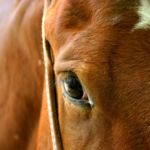
When horses ‘choke’
Horse Health: The condition in horses refers to the inability to swallow rather than an obstruction of breathing
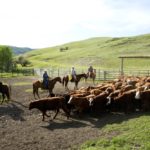
Beef 911: The revised Beef Code of Practice a win for everyone
Everyone involved in the cattle industry should keep a copy handy and consult it frequently

Regulatory changes would limit farmers’ vet drug imports
Proposed Health Canada changes will affect how antimicrobials are imported into Canada
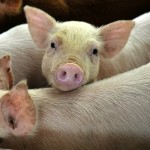
Pork pain management rules begin July 1
All castration and tail docking will require pain management, a change the industry says it’s ready for
Beef 911: Ways to reduce incidence of navel ill
You need to pay close attention to this costly problem and take steps to reduce it
Beef 911: When the need arises, fetotomy is the best solution
The goal is always to protect the cow from further trauma and hopefully give her many more productive years
Beef 911: Calving problems are decreasing, but stay vigilant
Vets aren't called out during calving as often as they used to be, but producers need to know when to call for backup
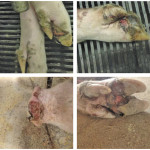
Pig producers warned to be on the lookout for virus
Seneca Valley virus is a concern because its symptoms are the same as those for foot-and-mouth
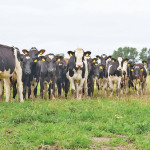
Social licence requires animal welfare
Don’t expect cows to be sleeping at the foot of the bed any time soon, but farm animals are being extended new welfare consideration

Gathering an industry baseline on stress
A new research project is looking for producer input on current stress levels and looks to develop industry-specific resources


